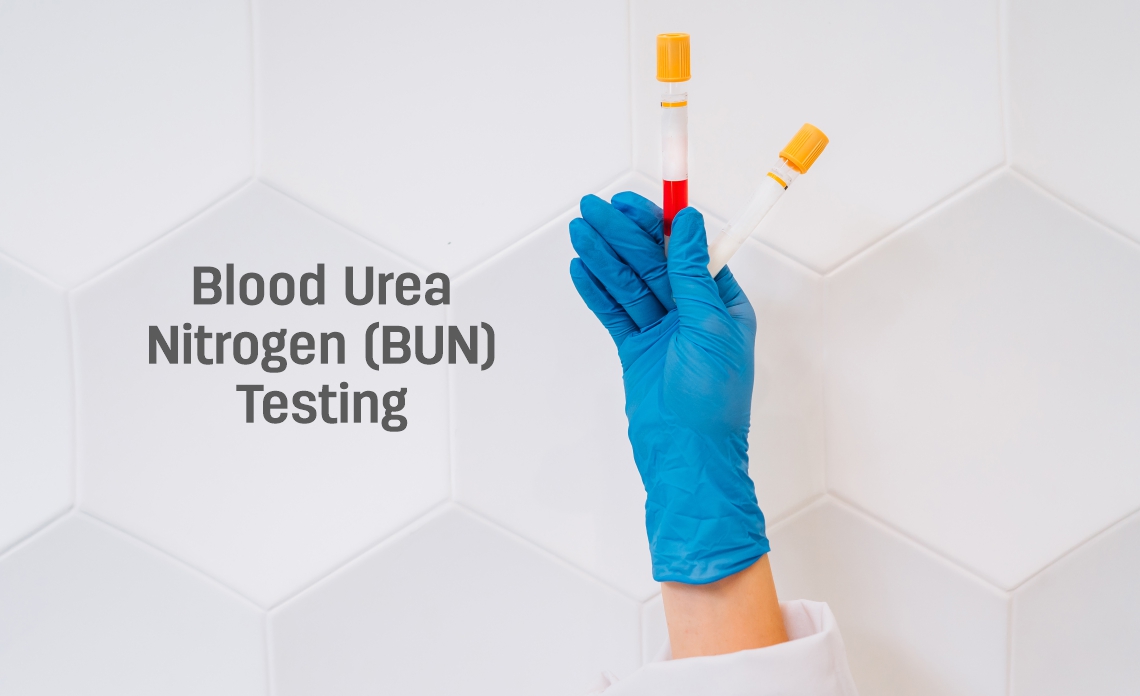|
|

Urea nitrogen is considered a waste of products. This develops when the body breaks down
the protein from the food we eat. It builds up in the liver and moves through the blood to your kidneys,
which then filter out of the blood. It leaves the body through urination or pee. The BUN test
helps to indicate whether the urea nitrogen levels have risen beyond the normal range,
indicating a potential problem with kidney functionality.
The BUN is required to assess kidney function and can be used to diagnose a variety of
conditions, such as kidney disease, urinary tract infection, and dehydration. It is also commonly
used to monitor people with chronic kidney disease or those undergoing dialysis treatments. A
BUN test is a simple procedure that requires only a small sample of blood.
The BUN test is usually advised when a patient is showing signs of kidney disease, such as
fatigue, itching, muscle cramp, swelling in the feet and ankles, and dark-colored urine. It can
also be recommended for people who are at risk for developing kidney problems due to certain
medical conditions or medications. In addition, it can be used to monitor patients who are
already receiving treatment for renal diseases.
Early kidney disease tends to have no signs or symptoms. Persons may be more at risk of
developing kidney disease if he or she has:
| Age and Sex | Normal BUN Level (mg/dL) |
| Children between 1 and 17 years. | Between 7 and 20 mg/dL. |
| Adult women and people assigned female at birth. | Between 6 and 21 mg/dL. |
| Adult men and people assigned male at birth. | Between 8 and 24 mg/dL. |
High blood urea nitrogen indicates-
Unipath offers a comprehensive range of clinical laboratory tests for prognosis, early detection,
diagnosis, and monitoring of disease. Unipath offers a broad range of test menus, comprising 1500
clinical laboratory tests, and conducts more than 50,00,000 tests annually by using state-of-the-art equipment that has been designed to provide quality reports as quickly as possible.
Simplifying patient sample collection challenges, Unipath offers home sample collection as
well.
To book the test, please contact us at +91(79) 49006800 or visit www.unipath.in
Recent Posts